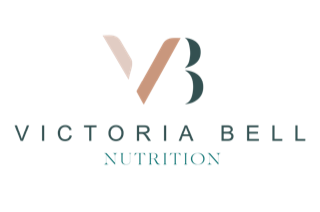Food. We need it, we can’t live without it.
But if our digestion isn’t great, food can feel like an adversary.
Some foods we might fear, or want to avoid. Perhaps we know that the foods we crave so much are making us feel below par. It can be a constant distraction, something we feel the need to plan for, control, measure or restrict.
We’re all unique and so food may make us all feel differently. But many people might experience some of the following:
constant tummy trouble
indigestion
acid reflux
trapped wind
bloating
constipation
feeling like food hangs around way too long so you feel sluggish all day
But what if we flip our view of food on its head? See food as a medicine, rather than making us reach out for the over the counter medicines?
Over two thousand years ago, the ancient Greek philosopher Hippocrates was quoted as saying “Let food be thy medicine, and medicine be thy food.”
Well before modern science, medicine and technology, it was known that our bodies are built to naturally maintain balance in health, and that nature provided everything we needed for our bodies to thrive and heal from illness and injury.
Although food may trigger uncomfortable symptoms, and it may be partly down to what has been done to the food before it reaches our plates (think chemicals, pollution, processing, radiation and GMO, for example), this is only part of the whole picture. A whole host of lifestyle and environmental factors influence your digestive health, and narrowing the causes down to work out what do can be equally complicated.
While you may suspect a food intolerance or some other underlying health issue that may take some time to identify, there are plenty of healing foods you can try NOW to help relieve some discomfort.
My Top 10 Foods to Improve Digestion (rather than using over the counter medications to dampen your symptoms!):
1. Bitter foods, including rocket, kale, radicchio, dill, dandelion greens and citrus: These encourage the production in the stomach of a substance called gastrin, which stimulates the production of:
stomach acid and digestive enzymes which help break your food down
and bile which helps you to digest fats
Use these at the beginning of a meal, to prepare your gut for digestion. A bitter greens salad dressed with some olive, hemp, or cold pressed rapeseed oil is ideal.
2. Dandelion tea and peppermint tea: also bitter, teas can also be used as a digestive after eating. Peppermint has been shown to calm down the involuntary spasms that some people experience after eating as a wave of cramp-like feelings in the abdomen. For some people the effect is comparable to prescription anti-spasmodics used for irritable bowel syndrome.
3. Oats: a gluten free grain, great for slow release energy, containing fibre which can improve bowel movements and beta glucans which help calm the immune system. But their star quality is that they help to coat and protect the gut lining, giving it a chance to repair itself. Some people prefer gluten free oats, grown and processed in environments which ensure they can’t come into residue from other crops, such as wheat. But the protein avenin can be too similar to gluten for people with coeliac disease.
4. Bananas: these are high in potassium which helps peristalsis, the wave of muscle spasms in the gut which push food through. Full of pectin which aids digestion, insoluble fibre which bulks out your stool (a good thing!) and soluble fibre which forms a gel in your stomach, making you feel full for longer and slowing down energy release. The fibre also feeds your good gut bacteria and may also stop harmful bacteria from sticking to the gut lining.
5. Kefir: available in dairy, coconut or water form, home made or shop bought, kefir is full of probiotic (friendly) bacteria. These bacteria may not take up residence in the gut for long, but as they pass through, they can displace and move the less friendly bacteria on. People who have an overgrowth of gut bacteria may experience some gurgling or bloating at first, so it is worth trying over a few days or weeks to see if this settles down. Kefir made from dairy has already had most of the lactose broken down by bacteria, making it digestible for lactose intolerance.
6. Water: it almost always appears somewhere on every list! Water is needed for lots of chemical reactions in the body, including those that break foods down and release energy and nutrients for them. And of course, it hydrates the stool so that it can pass through easily. Aim for two litres a day, mostly between meals.
7. Chia seeds and Ground Flax Seeds: high in fibre and Omega 3 essential fats, these are great for relieving constipation. Try adding to porridge, muesli, smoothies, or as a chia pudding.
8. Fennel: used therapeutically for respiratory and other infections, it is also very soothing for the gut and stimulates digestion. Enjoy cooked, added to a salad, or use the seeds to make a tea. Shop bought fennel tea is also available.
9. Apple cider vinegar: anecdotally, most people who use it to improve digestion find that it does help. But if you have too much stomach acid, this might not be for you. You can either add it to a glass of water before a meal, starting with a teaspoon and working your way up to a tablespoon, or you could mix it with some oil and dress your bitter greens salad above.
10. Lots of plant foods: increasing the quantity and variety of fruits and vegetables is one of the best things you can do for your health, and there are so many to choose from! Diversity in your diet, paired with a gradual increase in fibre, will help to balance your microbiome.



